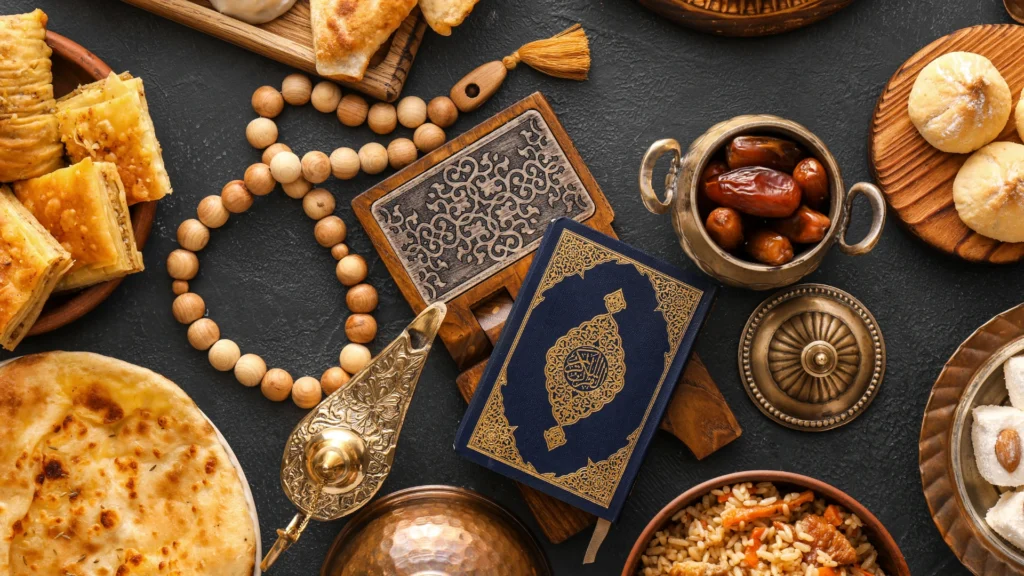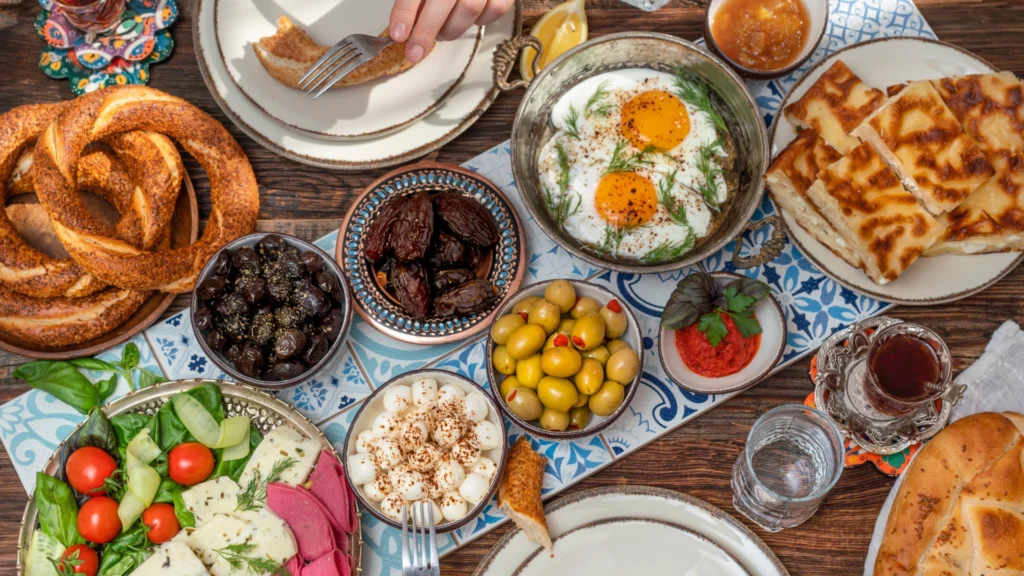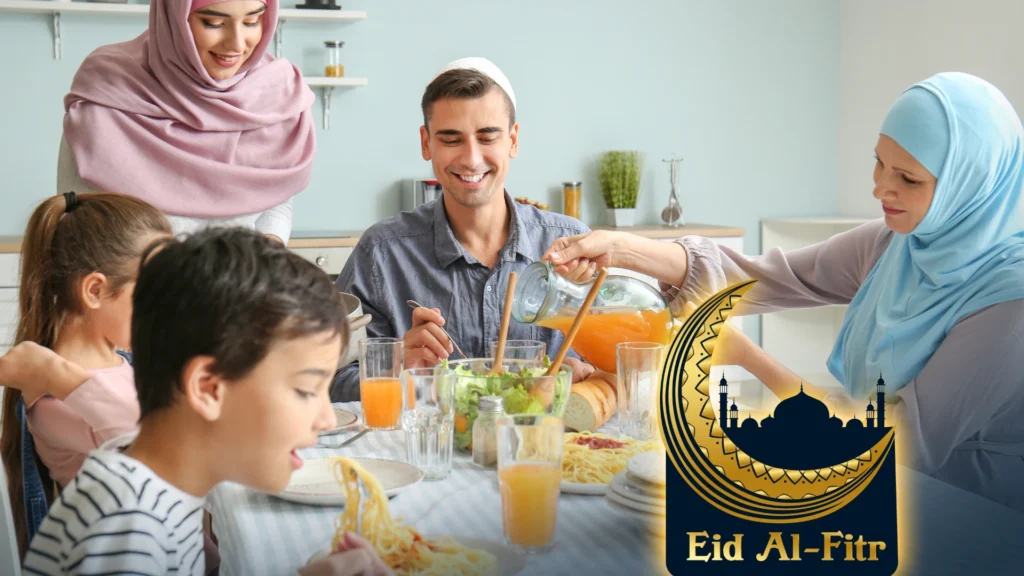Understanding the Significance of Ramadan: A Holistic Guide

By Hub Al Quran, Online Quran Academy. 07 February 2024
Table of Contents
Ramadan, the ninth month of the Islamic calendar, is a sacred time for Muslims around the world. Beyond being a mere period of fasting, it holds a profound spiritual significance that resonates deeply within the hearts of believers. In this blog, we will explore the multifaceted aspects of Ramadan, delving into its spiritual importance and the practices that make it a unique and cherished month for Muslims.
The Spiritual Significance
Fasting (Sawm): One of Islam’s Five Pillars is fasting during the month of Ramadan. Muslims refrain from eating, drinking, smoking, and having sex throughout the day. This physical and spiritual discipline is about abstaining from food and profound self-transformation. It serves as a reminder of our reliance on Allah, teaching us:
Self-control: Fasting instills self-control and restraint, allowing individuals to master their desires and impulses.
Empathy for the less fortunate: Through fasting, Muslims experience hunger and thirst, fostering empathy and compassion for those who face poverty and scarcity daily.
Gratitude: Fasting nurtures a deep appreciation for the blessings of sustenance many often take for granted.
Hadith: “Whoever fasts during Ramadan with faith and seeking his reward from Allah will have his past sins forgiven.” (Sahih al-Bukhari)
Increased Prayer (Salah): During Ramadan, Muslims engage in additional prayers, including Taraweeh, which are extra nightly prayers performed at the mosque. These other acts of worship are not only about quantity but also about deepening one’s connection with Allah and the Quran
Strengthening connection with Allah: The increased devotion and prayer during Ramadan create a stronger spiritual bond between Muslims and their Creator.
Reflecting on the Quran: Taraweeh prayers involve reciting the Quran, allowing Muslims to immerse themselves in its teachings and guidance.
Hadith: “The fast and the Qur’an will intercede for the servant on the Day of Judgment: The fast will say, ‘O Lord, I prevented him from food and drink during the day, so let me intercede for him.’ And the Qur’an will say, ‘I kept him from sleeping at night, so let me intercede for him.’ And they will be allowed to intercede.” (Ahmad)
Charity (Zakat and Sadaqah): Giving to those in need is a fundamental aspect of Ramadan. Muslims are encouraged to contribute to charity and extend a helping hand to those less fortunate. This act of giving goes beyond mere financial support; it serves as a means of purification of the soul:
Purification of the soul: Giving to charity purifies the soul, promoting selflessness, empathy, and compassion.
Supporting people in need: It provides much-needed assistance to those in need, ensuring that they, too, can have a better Ramadan.
Hadith: “The one who gives iftar to a fasting person during this month will be like one who has freed someone, and his past sins will be forgiven.” (Sahih Ibn Khuzaymah)
The Importance of Suhoor and Iftar

Suhoor: The pre-dawn meal, known as Suhoor, holds a special place for those fasting. Beyond being a source of sustenance, Suhoor has spiritual significance. It provides the energy needed to endure the day’s fast. Suhoor traditions often begin with the consumption of dates and water, following the Sunnah (traditions of the Prophet).
Iftar: The evening meal, known as iftar, is served at sundown to break the fast. It marks a moment of communal joy and gratitude. Iftar often commences with the consumption of dates and water to emulate the Prophet’s practice. It is followed by a more substantial meal shared with family and community members.
The Night of Decree (Laylat al-Qadr)
The Night of Decree, known as Laylat al-Qadr, is a highly revered night during the last ten days of Ramadan. According to popular belief, the Prophet Muhammad (peace be upon him) received the Quran for the first time on this night. Laylat al-Qadr is a time of immense spiritual significance, and its virtues are described in the Quran:
“Indeed, We sent the Qur’an down during the Night of Decree. And what can help you know what the Night of Decree is? The Night of Decree is better than a thousand months. The angels and the Spirit descend therein by permission of their Lord for every matter. Peace it is until the emergence of dawn.” (Quran, Surah Al-Qadr)
Muslims fervently seek Laylat al-Qadr, engaging in worship and supplication throughout the night, as it is believed that on this night, the blessings and forgiveness of Allah are abundant, and prayers are more likely to be answered. The exact date of Laylat al-Qadr is still being determined, but it falls within the odd-numbered nights of the last ten days of Ramadan (21st, 23rd, 25th, 27th, or 29th night).
The significance of Laylat al-Qadr is a testament to the depth of spirituality that Ramadan offers. It is a night of reflection, devotion and a chance for believers to seek Allah’s mercy and guidance.
Preparing for Eid al-Fitr

Eid al-Fitr is a joyous event that signals the end of fasting and comes at the end of Ramadan. It begins with a special prayer at the mosque and includes communal gatherings, feasting, and the exchange of gifts. Preparations for Eid, including buying new clothes and sharing food with the less fortunate, are part of the joyous occasion.
Conclusion
Ramadan is a month of profound spiritual growth, self-reflection, and devotion for Muslims. It is a time to strengthen one’s relationship with Allah, seek forgiveness, and extend a helping hand to those in need. Being aware of Ramadan’s significance enables us to appreciate this holy month’s depth and beauty fully.
As you join in the celebrations or learn more about Ramadan, may you gain a deeper appreciation for the values of empathy, compassion, and gratitude at its core.
Faqs
Fasting during Ramadan is a religious obligation for Muslims. It is a spiritual practice that cultivates self-control, empathy, and gratitude. It also marks the first Quranic revelation to Prophet Muhammad (peace be upon him).
Fasting during Ramadan is obligatory for adult Muslims who are mentally and physically capable. Exceptions are made for travelers, the sick, pregnant or nursing women, and young children. Those who are exempt are encouraged to make up the missed fasts later.
Taraweeh prayers are extra nightly prayers performed during Ramadan. They offer an opportunity to recite the Quran and seek spiritual closeness to Allah. These prayers are not obligatory but highly encouraged and held at mosques.
Laylat al-Qadr is considered the night when the Quran was first revealed. It is a night of great spiritual importance and is believed to be better than a thousand months. Muslims seek this night for increased worship, prayers, and seeking forgiveness.
Eid al-Fitr is a festive holiday marking the end of Ramadan. It begins with a special prayer at the mosque and includes communal gatherings, feasting, and giving of gifts. It is also a time for Muslims to express gratitude and perform acts of charity by giving to those in need.


